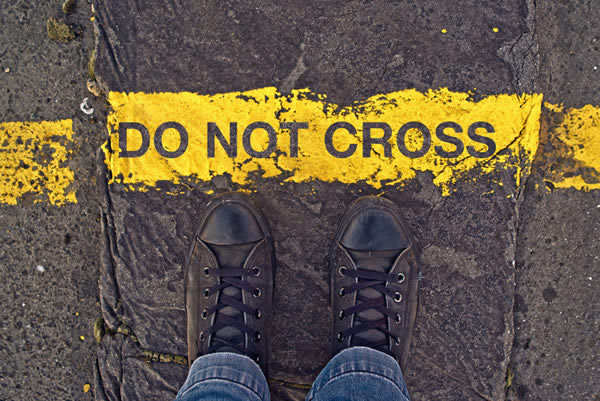What are personal boundaries? This is a question that many people ask, but don’t really understand the answer to. Personal boundaries are basically the limits you set for yourself in terms of how you allow others to treat you. They can be physical, emotional, or verbal boundaries. In this blog post, we will discuss all personal boundaries and how they can help improve your life.
Contents
- 1 What Are Personal Boundaries?
- 2 Importance of Personal Boundaries
- 2.1 Helps To Take Control In Your Life
- 2.2 Prevents Abuse And Manipulation
- 2.3 Helps To Maintain Healthy Relationships
- 2.4 Creates Sense Of Self-Worth And Confidence
- 2.5 Makes Life More Peaceful
- 2.6 Helps To Define Who You Are
- 2.7 Makes Sense Of Confusing Situations
- 2.8 Gives You Some Voice
- 2.9 Helps To Create Healthy Relationship
- 2.10 Helps To Give And Receive Love
- 3 How To Define And Enforce Your Personal Boundaries?
- 3.1 Know What’s Important To You
- 3.2 Think About What You’re Willing To Tolerate
- 3.3 Identify Your Boundaries In Different Situations
- 3.4 Talk To Others About Your Boundaries
- 3.5 Try Out New Boundaries
- 3.6 Try To Stand-Up For Yourself
- 3.7 Signs That Depicts Someone Is Enforcing My Personal Boundaries
- 3.8 Touch
- 3.9 Verbal Communication
- 3.10 Behavioral Changes
- 3.11 Manipulation
- 3.12 Intrusion
- 4 Negative Effects When Someone Crosses Personal Boundaries
- 5 How To Cope-Up When Someone Crosses Personal Boundaries?
- 6 Conclusion
- 7 A Word From Therapy Mantra
What Are Personal Boundaries?
 Personal Boundaries are the physical, emotional, and mental limits one sets to protect ourselves from being overwhelmed or controlled by others. They define who we are and how we want to be treated. These personal boundaries are not static, but change and evolve as you grow and experience new things.
Personal Boundaries are the physical, emotional, and mental limits one sets to protect ourselves from being overwhelmed or controlled by others. They define who we are and how we want to be treated. These personal boundaries are not static, but change and evolve as you grow and experience new things.
Sometimes these boundaries are clear and easy to identify, while other times they are more subtle and not as easily defined.
Importance of Personal Boundaries
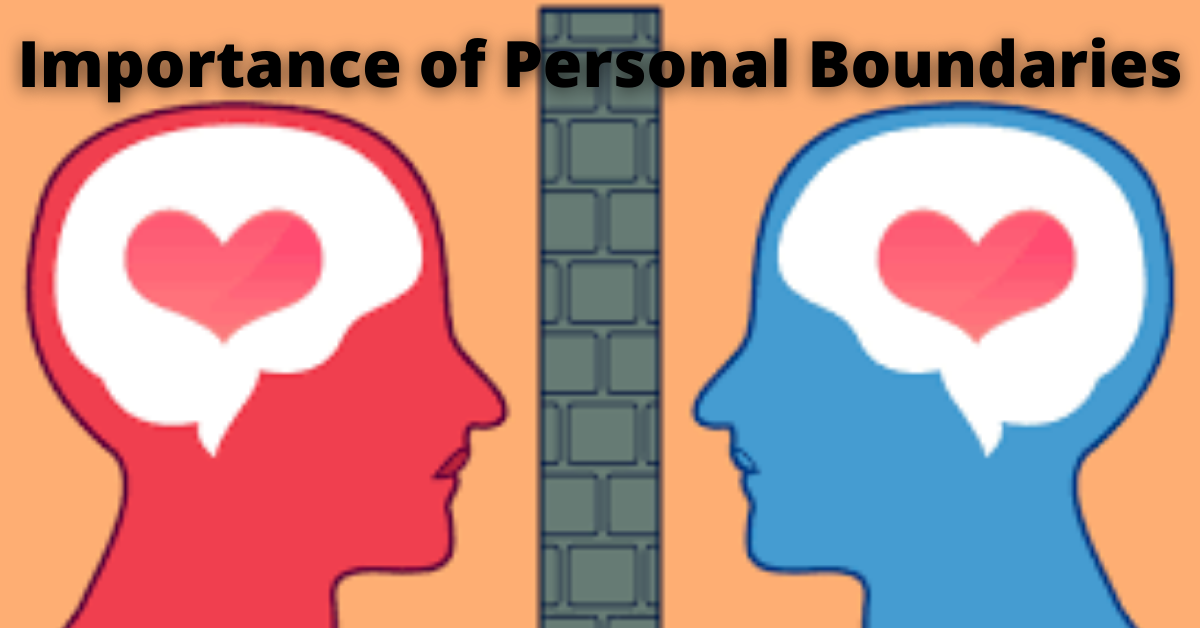
There can be great importance to setting and enforcing your personal boundaries.
These boundaries can help you to:
Helps To Take Control In Your Life
These boundaries help you to take back control of your lives and set the limits on how you will or will not be treated by others.
When you have personal boundaries, it sends a clear message to other people that you are not going to put up with being mistreated or taken advantage of.
Prevents Abuse And Manipulation
Setting and enforcing healthy boundaries can help prevent abuse and manipulation from happening in your lives.
Abusers often try to cross personal boundaries as a way of exerting their power over someone else, but when you have strong boundaries in place, it makes this much more difficult for them to do.
Helps To Maintain Healthy Relationships
Maintaining healthy personal boundaries is essential for maintaining healthy relationships with others.
When your boundaries are clear and well-defined, it helps to avoid misunderstandings and arguments. It also allows for a more equal balance of power in the relationship.
Creates Sense Of Self-Worth And Confidence
Setting strong personal boundaries can help to build self-worth and confidence.
This is because it shows that you respect and value yourself enough to not put up with being treated poorly by others. It also sends the message that you are not willing to compromise who you are or what you believe in order to please someone else.
Makes Life More Peaceful
When you have personal boundaries in place, it can lead to a more peaceful and harmonious life.
This is because you will no longer be tolerating or accepting behaviors from others that are harmful or make you feel bad about yourself. You will instead be choosing to surround yourself with people and situations that respect and support your boundaries.
Helps To Define Who You Are
Defining and setting your personal boundaries can help to define who you are as a person. It shows that you know what you stand for and what is important to you. It can also help to build self-identity and create a sense of self-awareness.
While personal boundaries are an important part of everyone’s life, sometimes it can be hard to define them. This is because they can be different for each person and vary depending on the situation. Furthermore, your boundaries may not always be clear or easy to identify.
Makes Sense Of Confusing Situations
In confusing or difficult situations, it can be helpful to think about what your personal boundaries are and how the other person is violating them.
This can help you to make sense of the situation and decide how you want to respond.
Gives You Some Voice
Having personal boundaries gives you a voice. It allows you to stand up for yourself and speak up when you are not being treated fairly or respectfully. It also enables you to communicate your needs and wants in a clear and concise way.
Helps To Create Healthy Relationship
When you have personal boundaries in a relationship, it creates a healthy balance of power. This is because each person is equal and there is no one person who is in control. It also allows for both people to be themselves and not feel like they need to change or accommodate the other person.
Helps To Give And Receive Love
Personal boundaries can also help to give and receive love in a relationship.
When both people have healthy boundaries, it allows for each person to be themselves and not feel like they need to change or hide who they are. It also enables them to trust and rely on the other person, knowing that they will not be taken advantage of.
How To Define And Enforce Your Personal Boundaries?
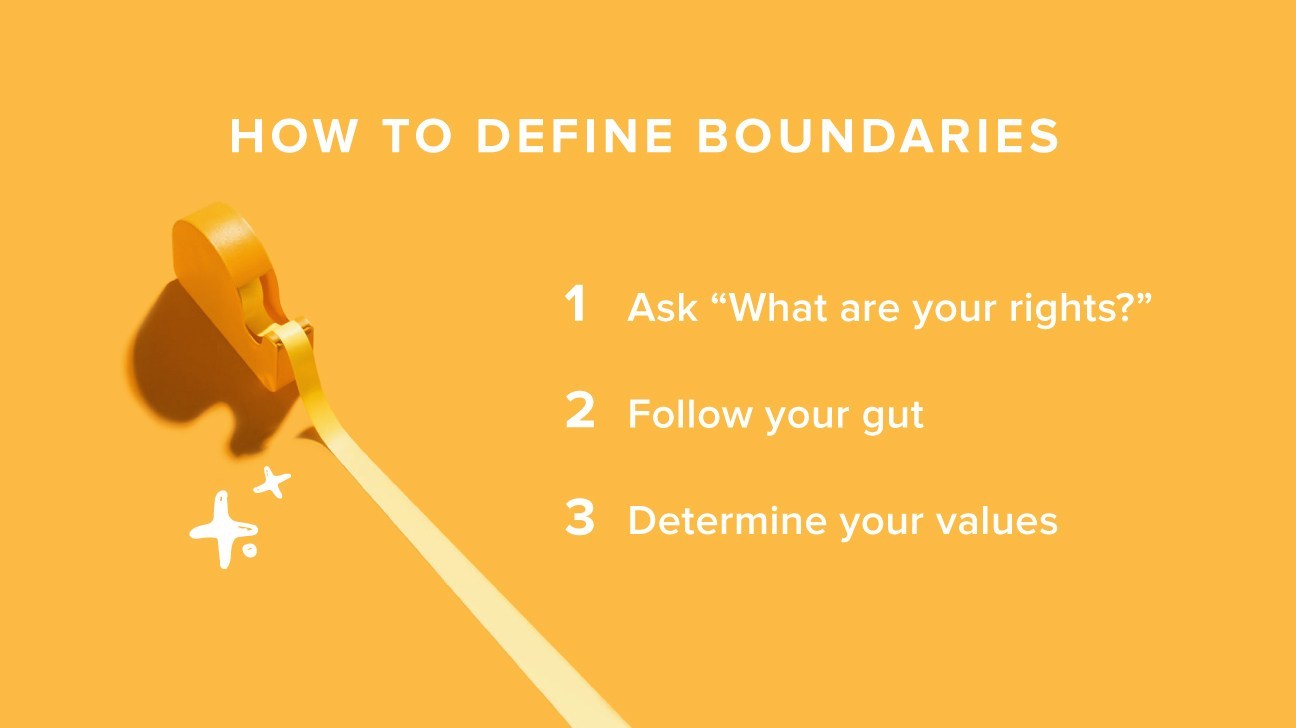
There is no one-size-fits-all answer to this question, as the best way to define and enforce your personal boundaries will vary from person to person. However, here are some tips on how to get started:
Know What’s Important To You
The first step in defining your personal boundaries is figuring out what’s important to you. What do you want to be sure never happens again? What kind of behavior makes you feel uncomfortable or violated?
Think About What You’re Willing To Tolerate
Once you know what’s important to you, it’s time to think about what you’re willing to tolerate. This includes things like how much personal space you need, how often you want people to contact you, and what kind of behavior is acceptable to others.
Identify Your Boundaries In Different Situations
Not all boundaries are the same in every situation. You may have different boundaries with your friends than you do with your family or different ones at work than you do at home. It’s important to be aware of these differences and identify which boundaries apply in each specific situation.
Talk To Others About Your Boundaries
It can be helpful to talk to the people in your life about your personal boundaries. This will help them understand what is and is not acceptable behavior towards you. It can also help to build a support system of people who will respect and uphold your boundaries.
Try Out New Boundaries
It’s important to be flexible with your personal boundaries and experiment with new ones.
This means that you may need to adjust them from time to time, depending on the situation. Don’t be afraid to try out different boundaries and see what works best for you.
Try To Stand-Up For Yourself
The best way to enforce your personal boundaries is to stand up for yourself.
If someone is violating your boundaries, don’t be afraid to speak up and let them know that it’s not okay. You may need to assert yourself in order to get the respect that you deserve.
Signs That Depicts Someone Is Enforcing My Personal Boundaries
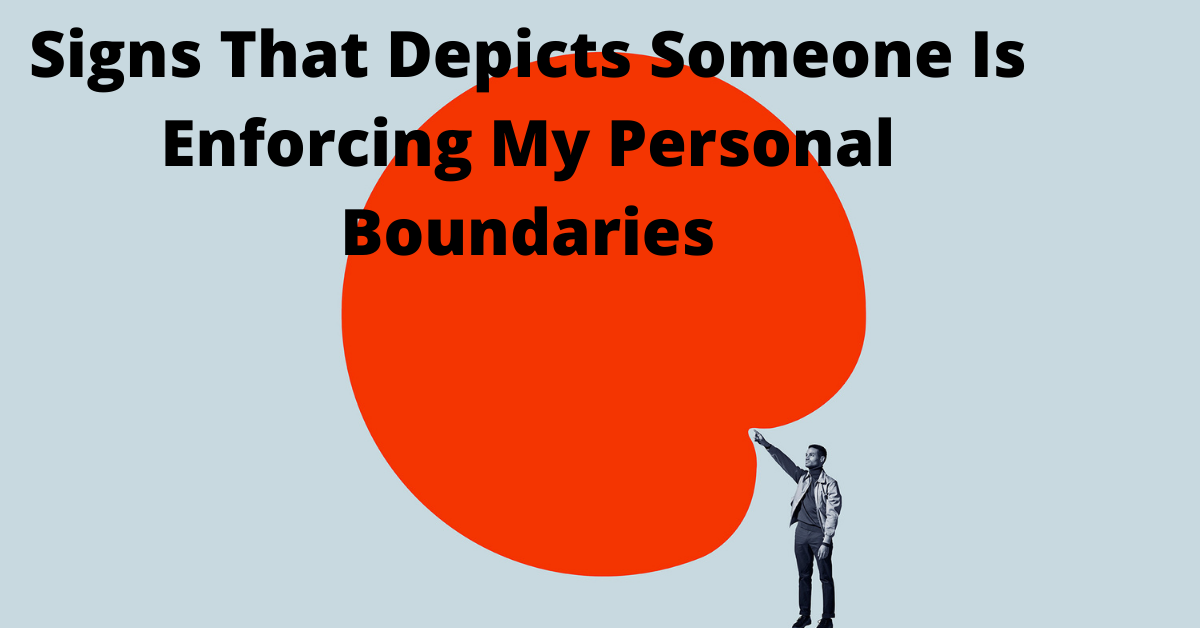
There are many signs that may indicate that someone is enforcing your personal boundaries.
Touch
This can be a difficult one to decipher, as some level of physical touch is normal in most relationships. However, if someone is touching you in a way that makes you feel uncomfortable or violated, it’s likely an indication that they are crossing your boundaries.
Verbal Communication
If someone is constantly communicating with you in a way that feels overwhelming or harassing, it’s likely that they are violating your communication boundaries. This may include excessive calling, texting, or emailing.
Behavioral Changes
If the person who is enforcing your personal boundaries begins to change their behavior around you, it may be because they are aware of the boundary and are testing it to see how far they can go. If this happens, don’t hesitate to enforce the boundary firmly.
Manipulation
Makes me do things I don’t want to. This is a clear indicator of boundary violation. Sometimes an individual will try to guilt you, or make you feel like you’re being unreasonable for having boundaries in the first place. Don’t let them. These are also signs of an unhealthy relationship.
Intrusion
Sometimes an individual will intrude on your personal space in a way that feels uncomfortable or threatening. This may include following you, showing up uninvited, or refusing to leave when asked.
Negative Effects When Someone Crosses Personal Boundaries
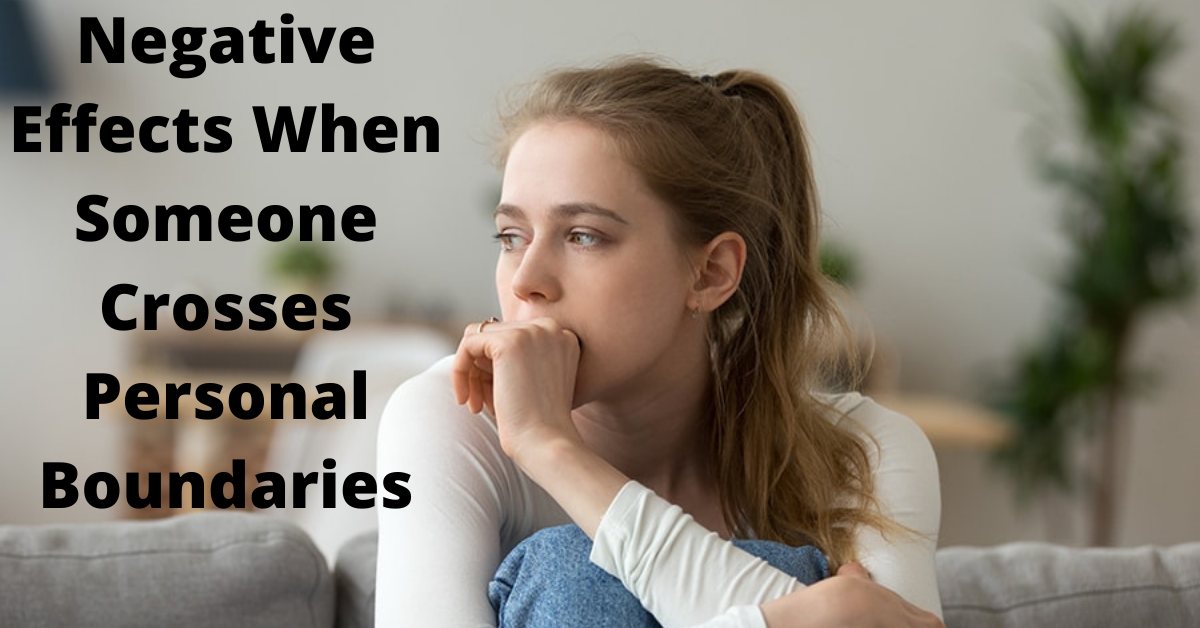
There are many negative effects that can occur when someone crosses your personal boundaries.
Anxiety
When someone is violating your boundaries, it can cause a lot of anxiety. This may be because you’re worried about what the person will do next or how far they will go. Sometimes, this anxiety can be so overwhelming that it’s difficult to focus on anything else.
Depression
If you find that someone is constantly crossing your boundaries, it can lead to a lot of depression. This is because you may feel like you’re not in control of your own life or that you don’t have any space to yourself.
Anger
When someone crosses your boundaries, it can often result in feelings of anger. This may be directed towards the person who is violating your boundaries, but it can also be directed at yourself for not standing up for yourself sooner.
Isolation
Feeling as though you have to isolate yourself from others is common when someone is enforcing your personal boundaries. You may begin to feel like you’re not able to trust anyone and that there’s no one who understands what you’re going through.
Resentment
If someone is constantly violating your boundaries, it’s likely that you will begin to feel resentment towards them. This may be because they are taking advantage of your kindness or because they are making you feel uncomfortable and violated.
How To Cope-Up When Someone Crosses Personal Boundaries?
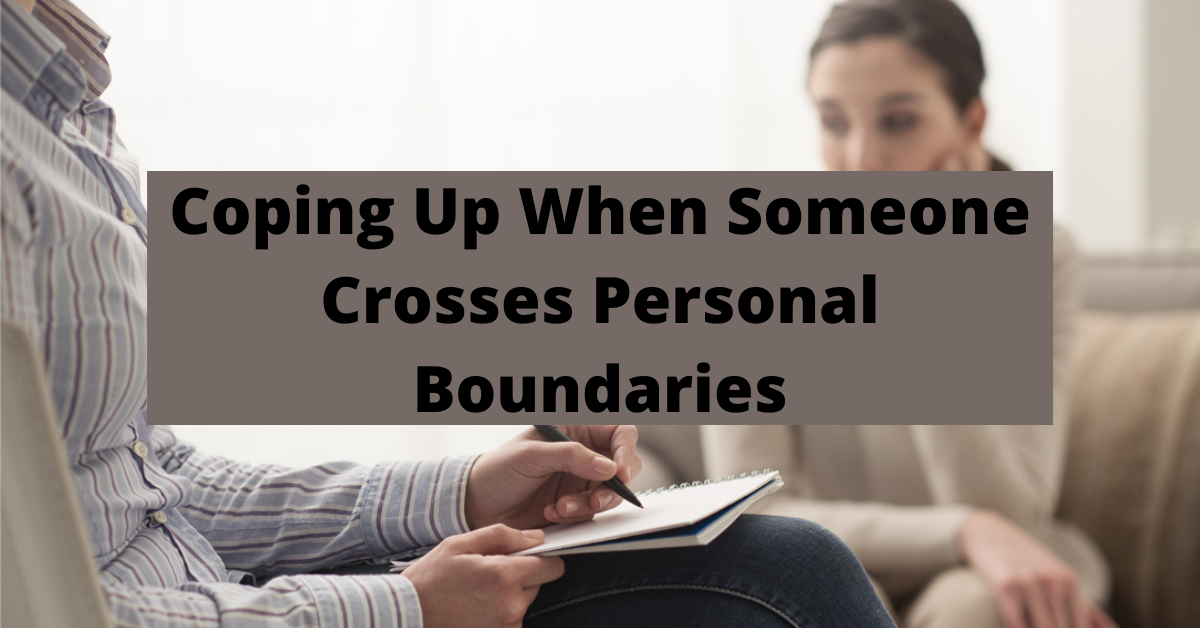
There are many ways that you can cope when someone crosses your personal boundaries.
Talk To Someone You Trust
Talking to someone about what’s going on is a great way to start coping up. It can be difficult to deal with boundary violations on your own, so it’s helpful to have someone who can listen and offer support. Make sure to choose someone who will be supportive and not judgmental.
Seek Professional Help
If you’re struggling to cope with boundary violations, it may be helpful to seek professional help. A therapist can assist you in understanding why the person is crossing your boundaries and how to deal with the negative effects that it has on your life.
Write Out Your Feelings
Journaling can also be a great way to cope with boundary violations. It allows you to express your feelings in a safe and therapeutic environment. Plus, it’s a great way to track any progress that you make over time.
Conclusion
In conclusion, personal boundaries are important and should be enforced firmly. There are many negative effects that can occur when someone crosses your boundaries, so it’s important to know how to cope. Talking to someone you trust or seeking professional help may be helpful. Journaling can also be a great way to deal with boundary violations. Thank you for reading!
You can also contact us for more information or support.
A Word From Therapy Mantra
Your mental health — your psychological, emotional, and social well-being — has an impact on every aspect of your life. Positive mental health essentially allows you to effectively deal with life’s everyday challenges.
Also, at Therapy Care, we have a team of therapists who provide affordable online therapy to assist you with issues such as depression, anxiety, stress, relationship, OCD, LGBTQ, and PTSD. You can take our mental health test. You can also book a free therapy or download our free Android or iOS app.
